Some reflections on "Markets on the Periphery", aliveness, competition, and food popups
Some scattered reflections foreign street markets and their similarity to the food popup scene in my backyard.
In an oddly serendipitous moment, while I lay in bed the morning after our return from the trip to China earlier this year, I stumbled upon an article about 'foreign' street markets and bazaars and their contentious relationship with traditional perceptions of competition and capitalism.
The CCRU article is worth reading, especially if you have experienced one of these markets, say in Bombay, Istanbul, or Bangkok.
Some unresolved contemplation below on street markets, aliveness, and competition. Screenshots from the article.
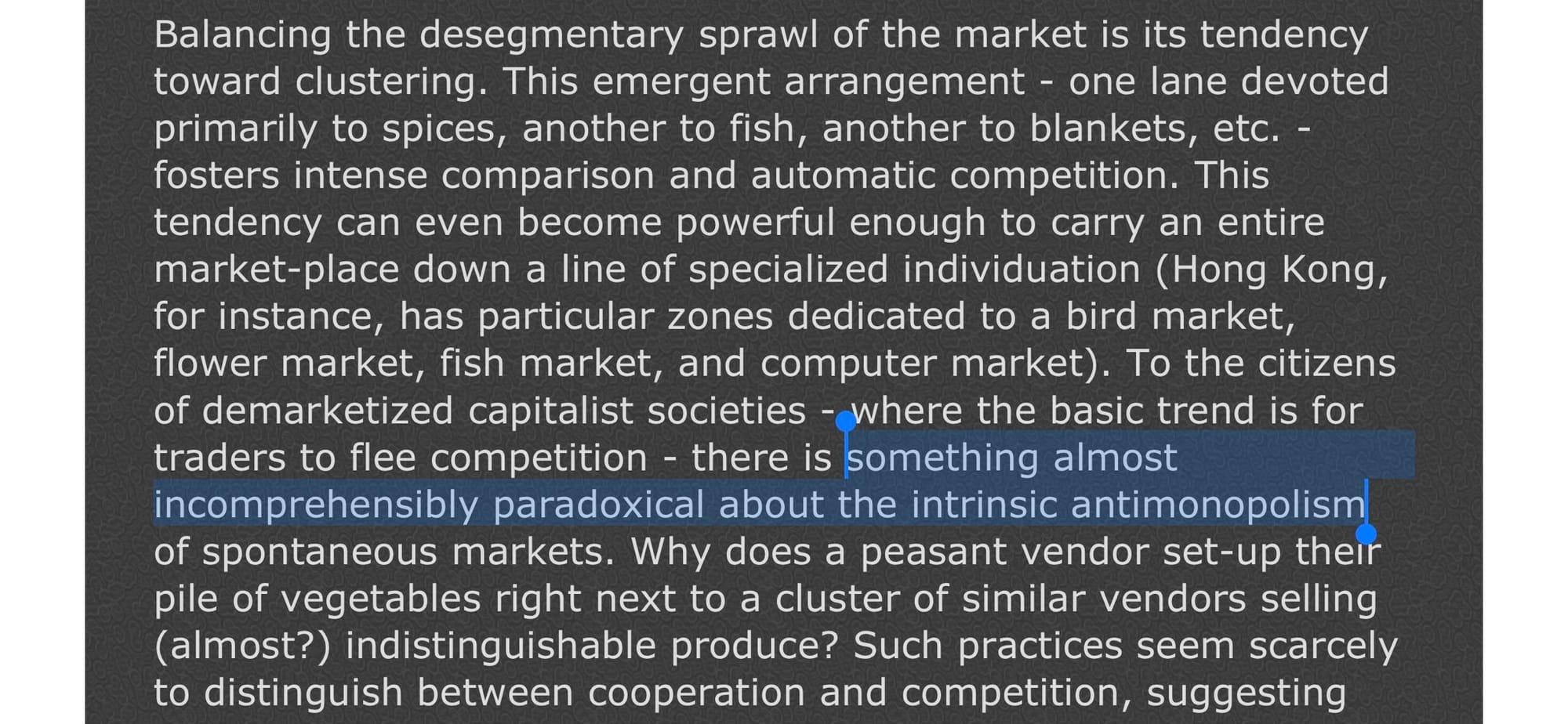
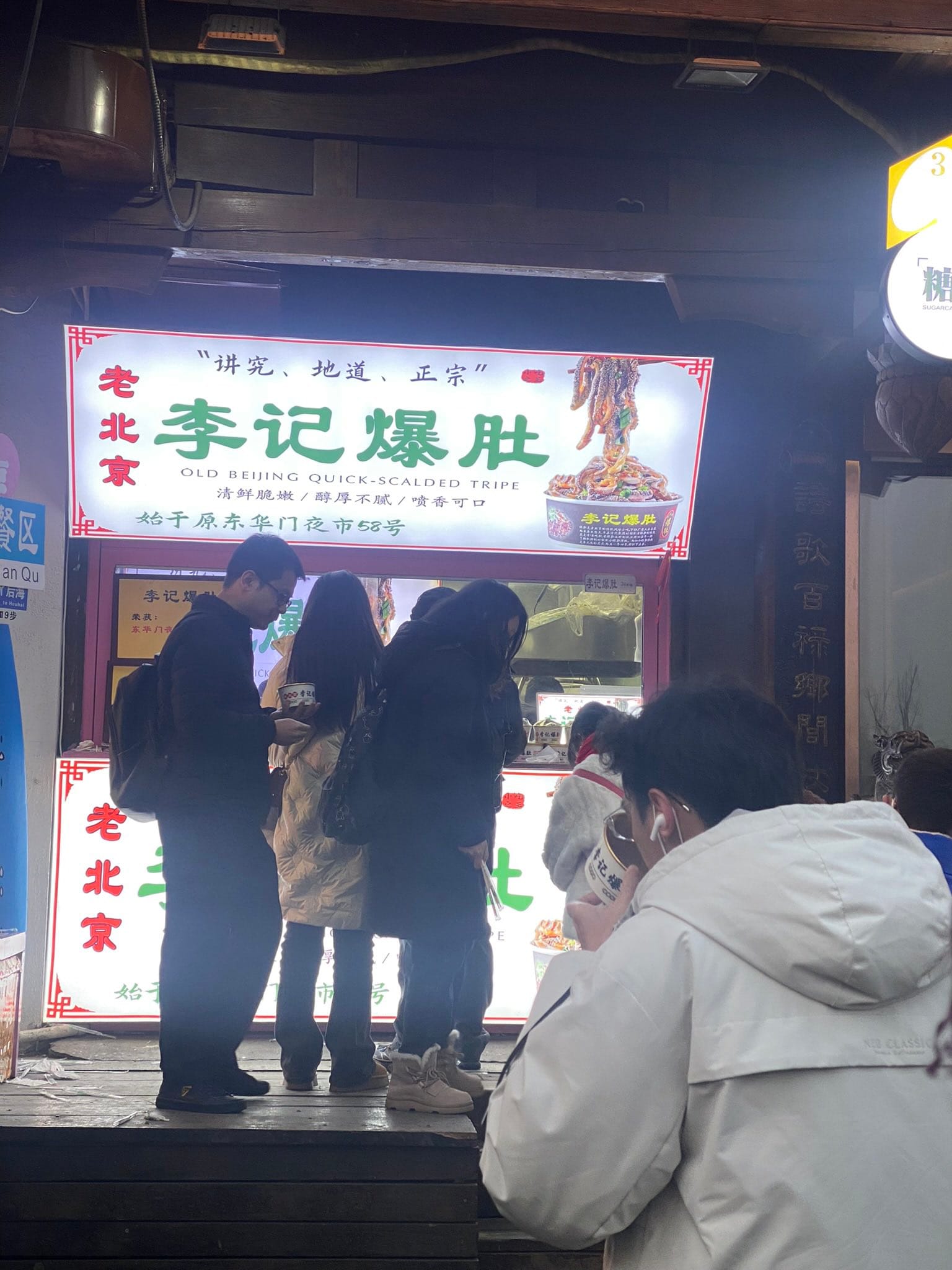
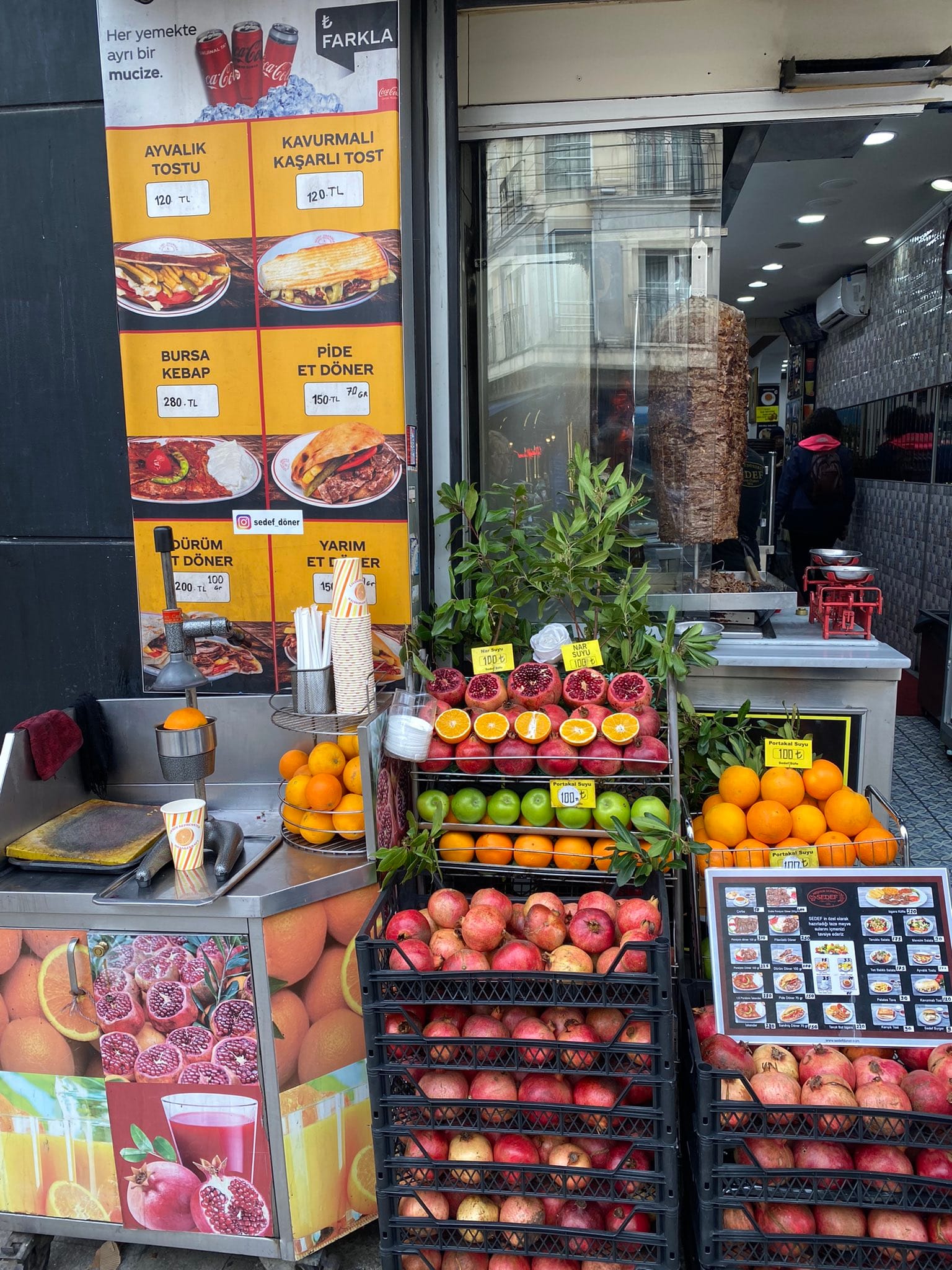
The markets I walked through in Istanbul and Beijing were not strictly spontaneous, but I wondered out loud to Katherine about the clustering and seemingly anti-monopolistic setup. Very similar to those in Bombay like Santacruz and Elco market, where I have spent countless hours. Dozens of stalls or storefronts selling an almost identical set of products.
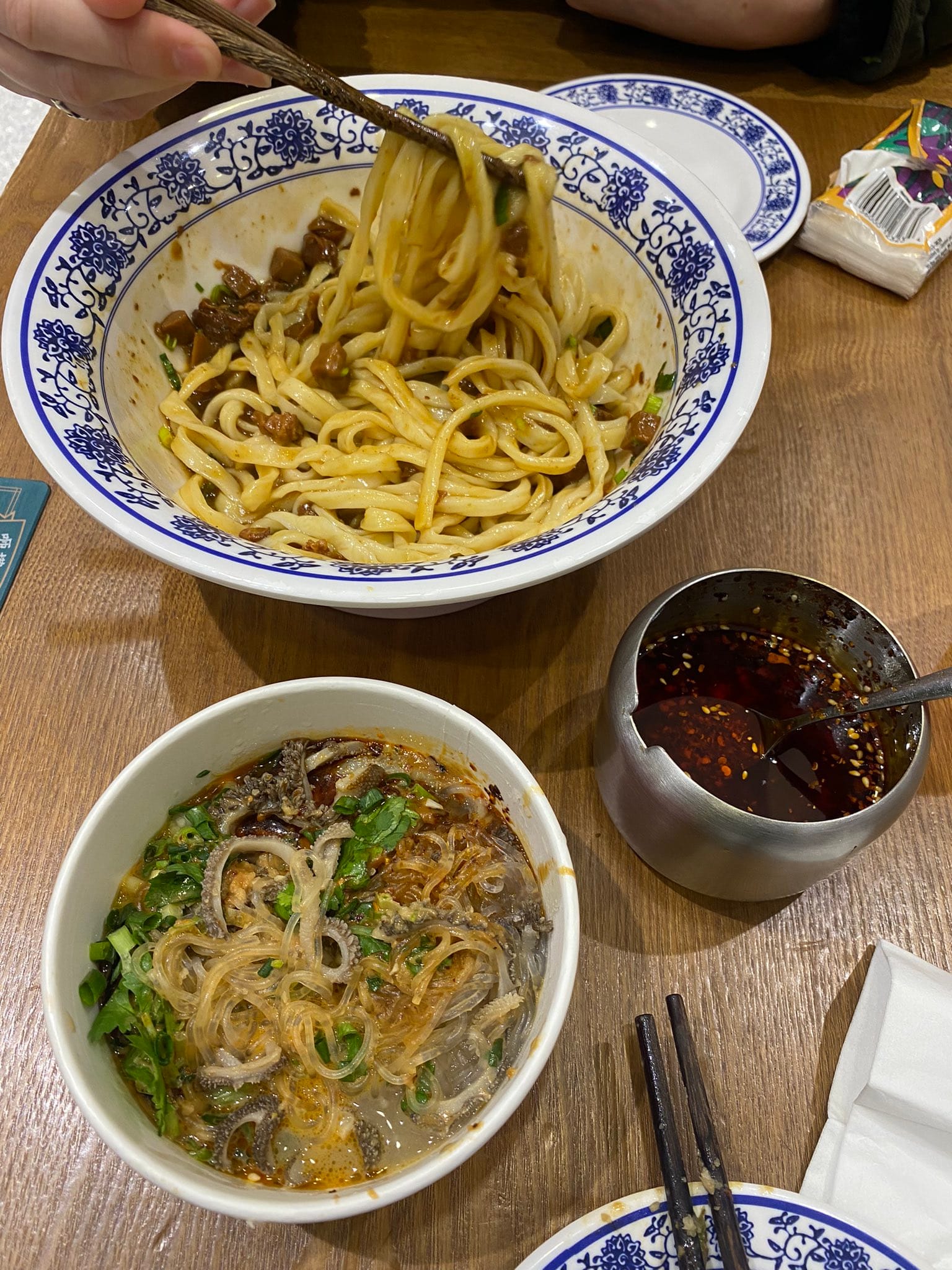
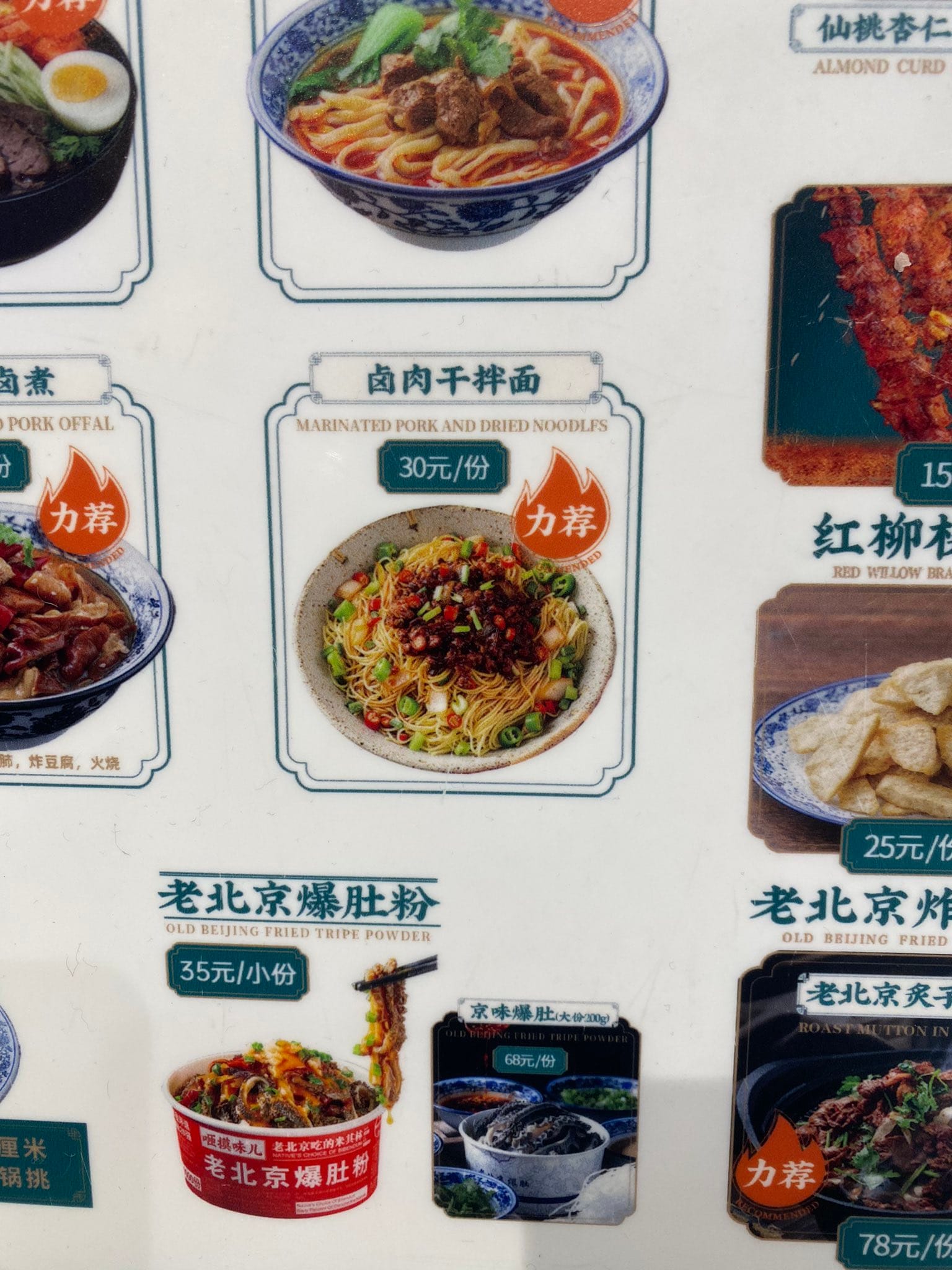
Walking through a hutong in Beijing on day 2 we had the quick scalded tripe (or was it the Old Beijing fried tripe powder?) and braised noodles. Both, a local friend told us are very popular, and both were seemingly available in about 5 different small stores in the same long alley. You are guided by some combination of vibes and luck and not any material difference in the product, pricing, or marketing.
Istanbul was similar. We wanted to grab some doner to go and found an endless number of places with similar menus, prices, and store ambassadors trying to cajole you into having a meal at their special space. The CCRU piece made me reflect on how this is relatively nonexistent in most Western cities. It's largely restricted to the immigrant periphery like Chinatown.
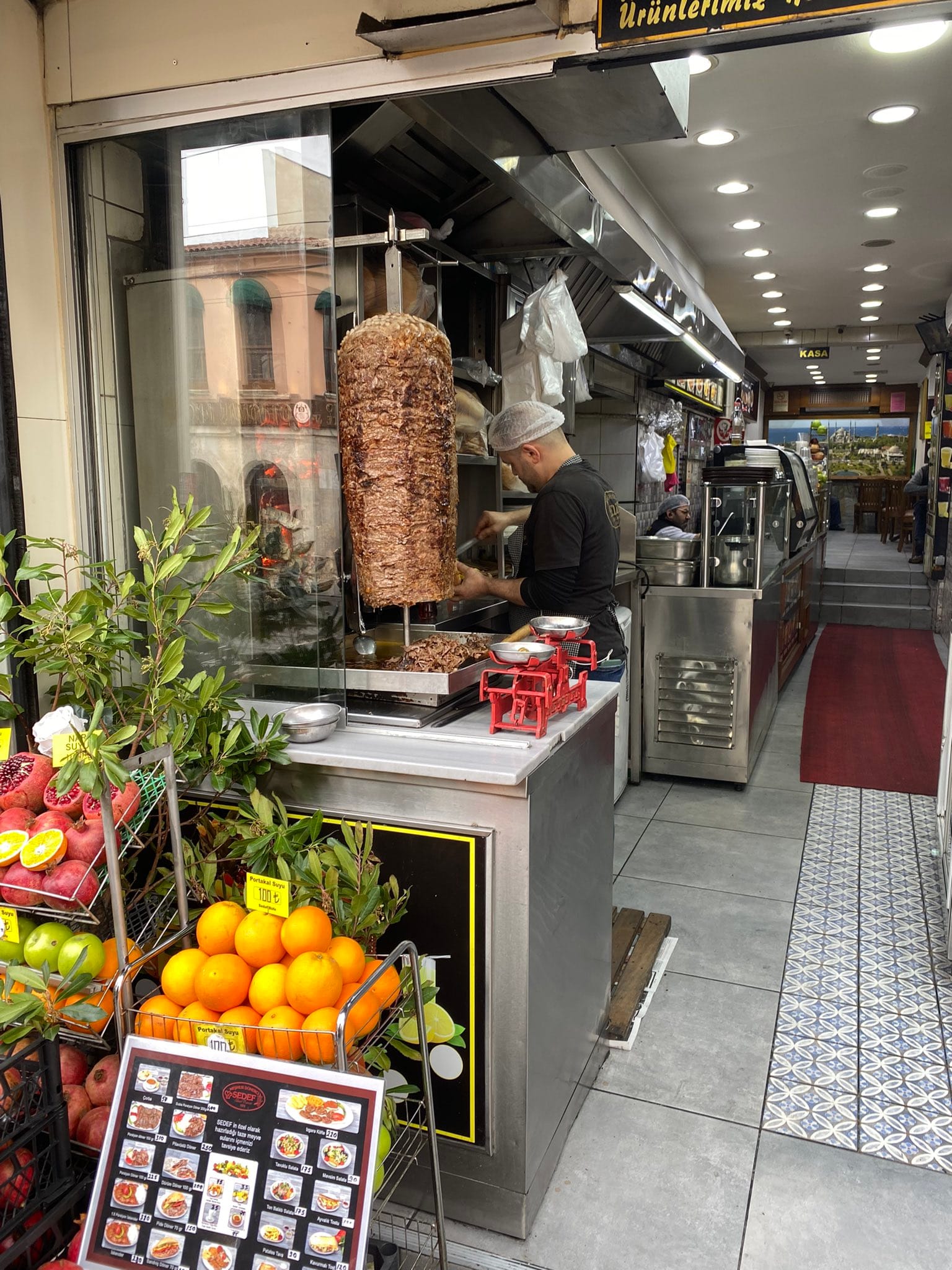
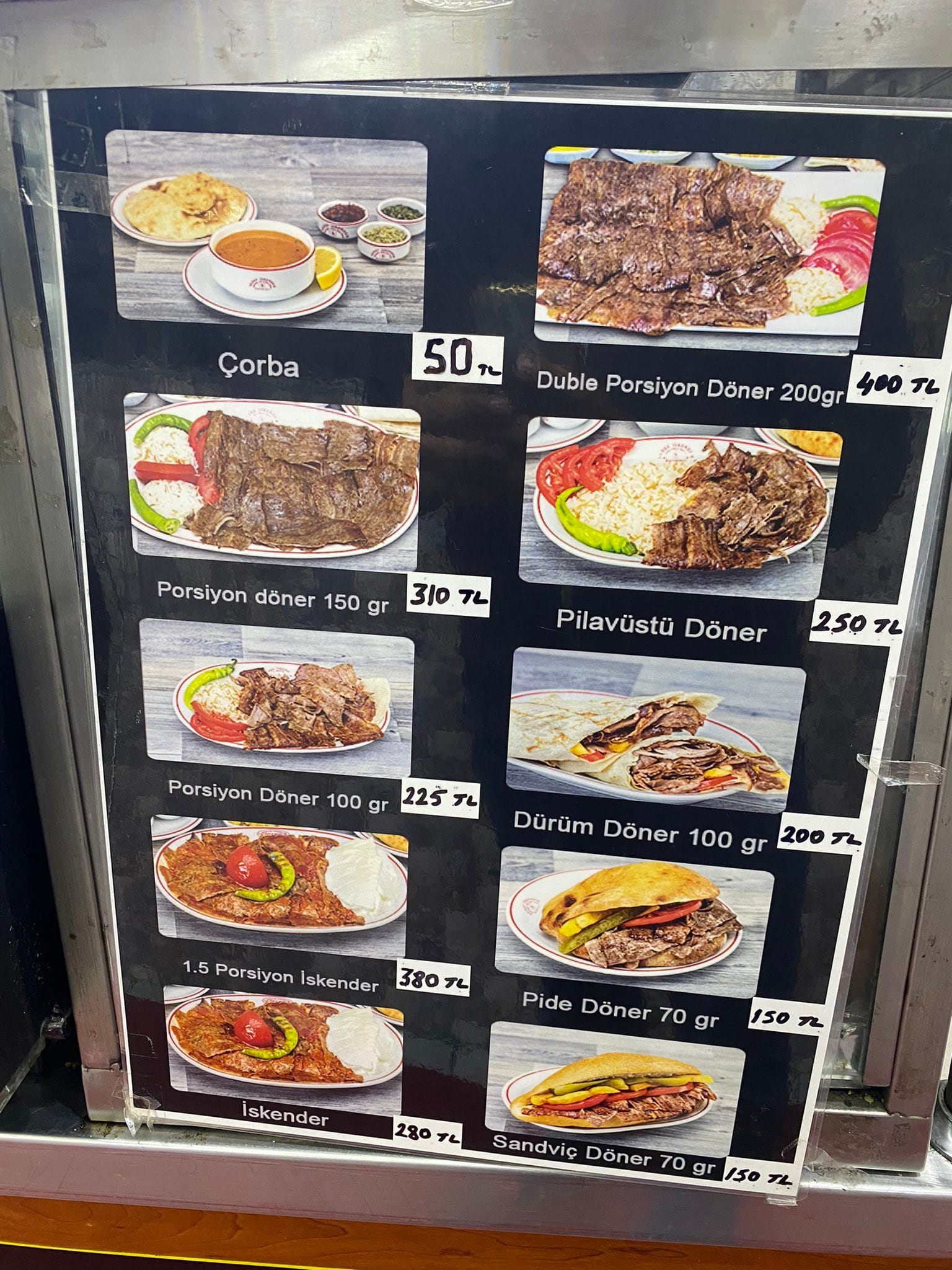
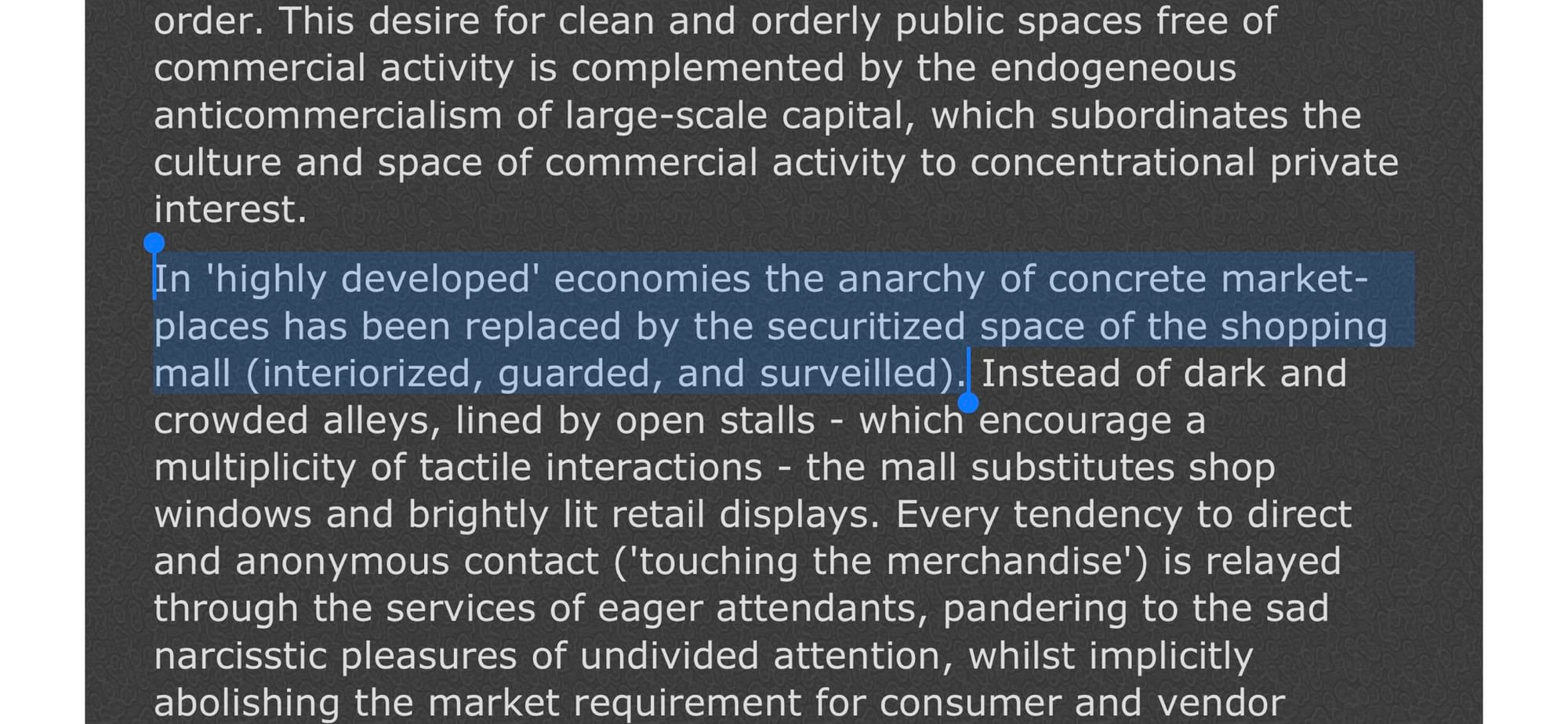
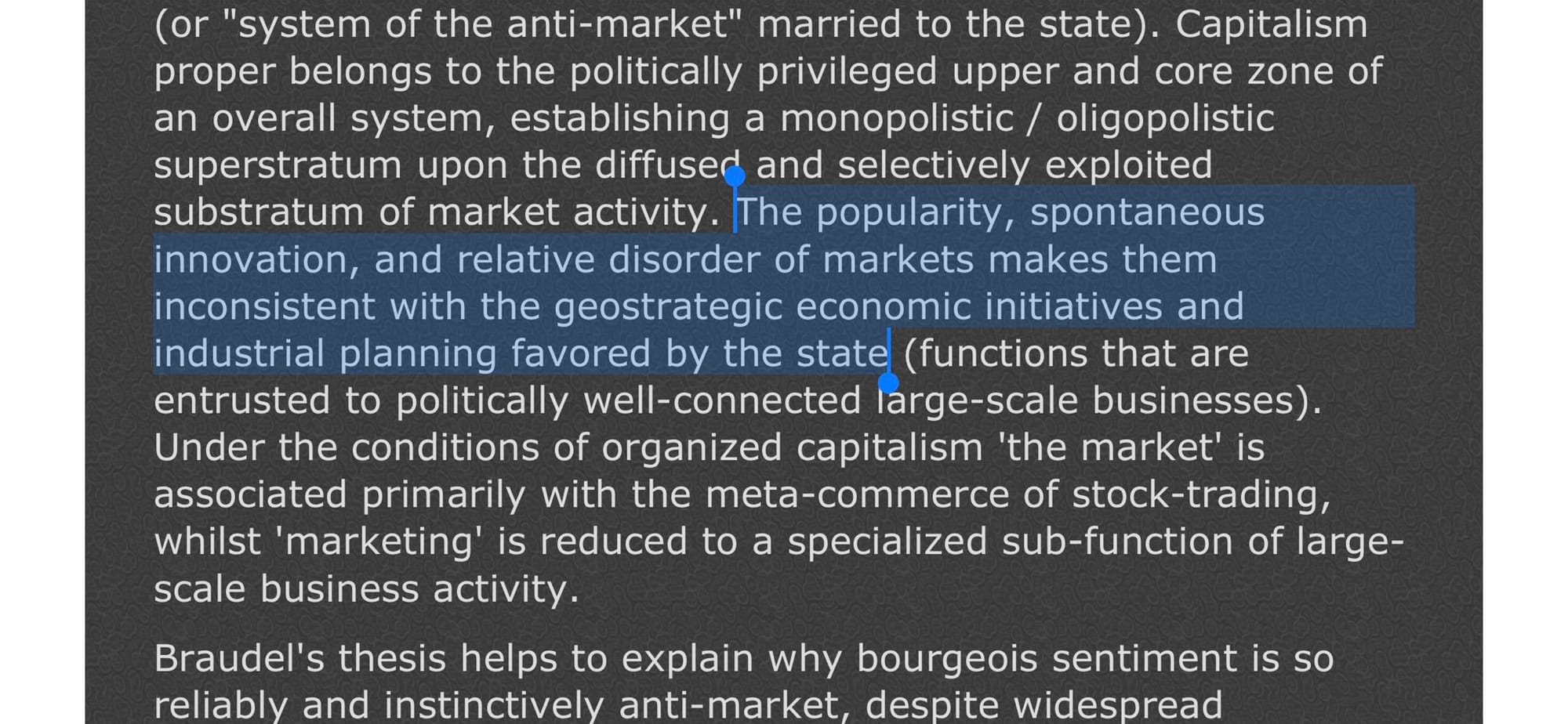
Hutongs in Beijing have a street market structure while also being deliberately separate from the life of the more financially and politically privileged. There is a degree of deliberation to the layout and likely many storefronts are owned by a smaller set of large businesses. So while the ‘anarchy of concrete marketplaces’ has not been entirely replaced it is an interesting bastardization. The hutongs of Beijing were how the city was organized from the days of the Ming and Qing dynasties but many were demolished to make way for more modern streets and construction.
An interesting mix where there isn't "spontaneous innovation" and a lack of "industrial planning favored by the state". However the "relative disorder" and perhaps importantly a sense of aliveness that's missing from Western-style shopping malls does very much exist.
There is an effervescence teeming in the space, even though the overarching structure within which it exists is manufactured by the state.
Bringing these rambling thoughts back to my reality in Detroit. Perhaps there is a return to this aliveness and deliberate disorder in the food popups and food truck scene that I'm part of? An attempt to return some semblance of the effervescence and spontaneity that our cities have lost.
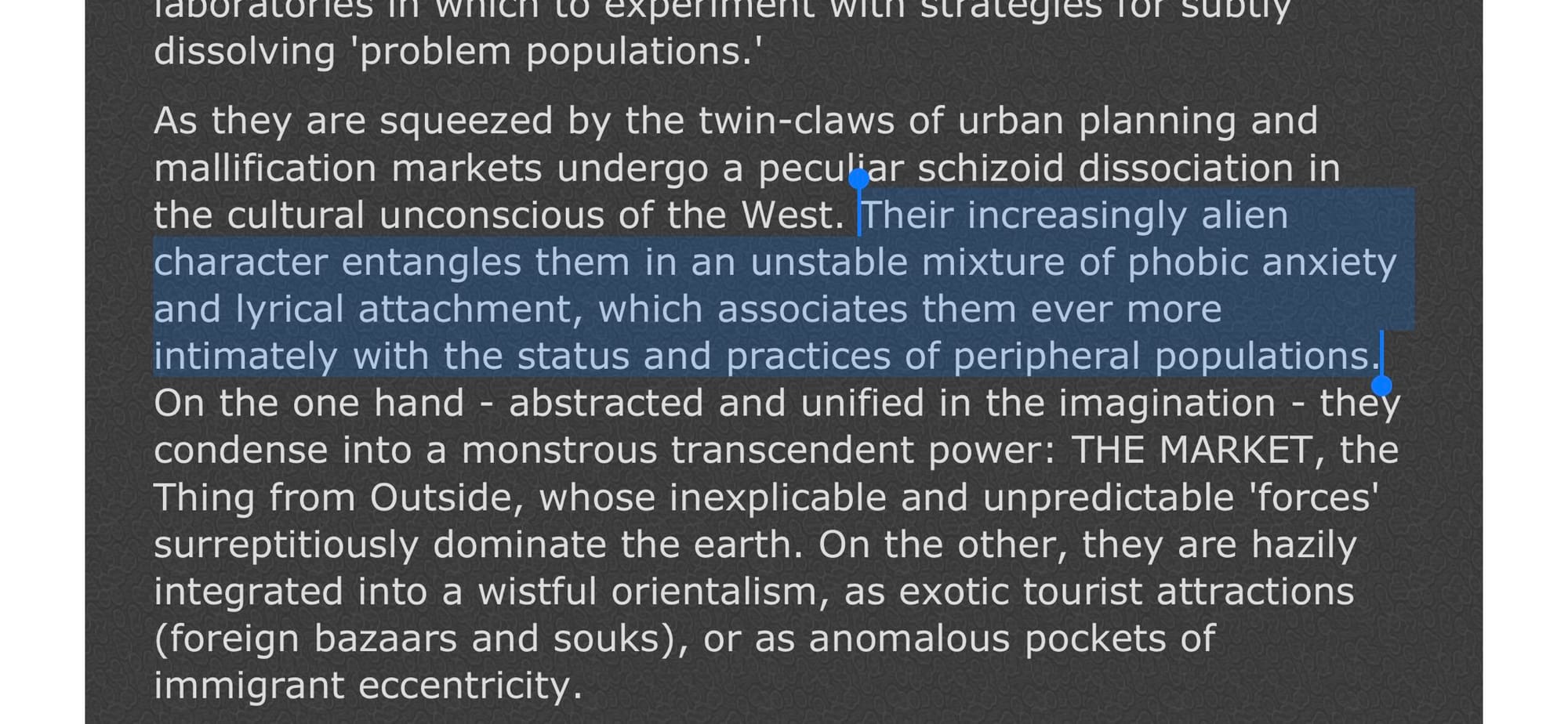
To be clear, this popup scene is not new, but it feels like it might be an uncoordinated, perhaps subconscious attempt to inject spontaneity into Western cities. I feel a semblance of the 'mixture of phobic anxiety and lyrical attachment' play out even where I live. There is a strong perhaps here, I'm still unsure if my line of thinking makes any sense. My writing is largely in service of helping me make sense of the world.
But if I go down this line of thinking - there is an inchoate demand for the kinds of food and experiences you’d otherwise only experience in these faraway street markets. People love a nice restaurant but also seek that sense of “lyrical attachment” with “peripheral populations”. When my dinner club crew does a kabab popup with lamb boti kababs in a neighborhood in Detroit we're bringing a portion of the lyrical attachment that street markets bring. The idea of a street market is a bit of a proxy here though. Foods like excellent american BBQ with its black lineage probably fit a similar model and have parallel roots
A parting thought: One point missing from the CCRU article, I believe, is that vendors in street markets in Istanbul and Bombay don’t always ascend to the middle class. Perhaps a few do, but most do not. The question I'll pause on today is whether the romanticism associated with foreign street markets is detached from this reality. And I wonder whether my own experiments can go beyond merely being experiments.